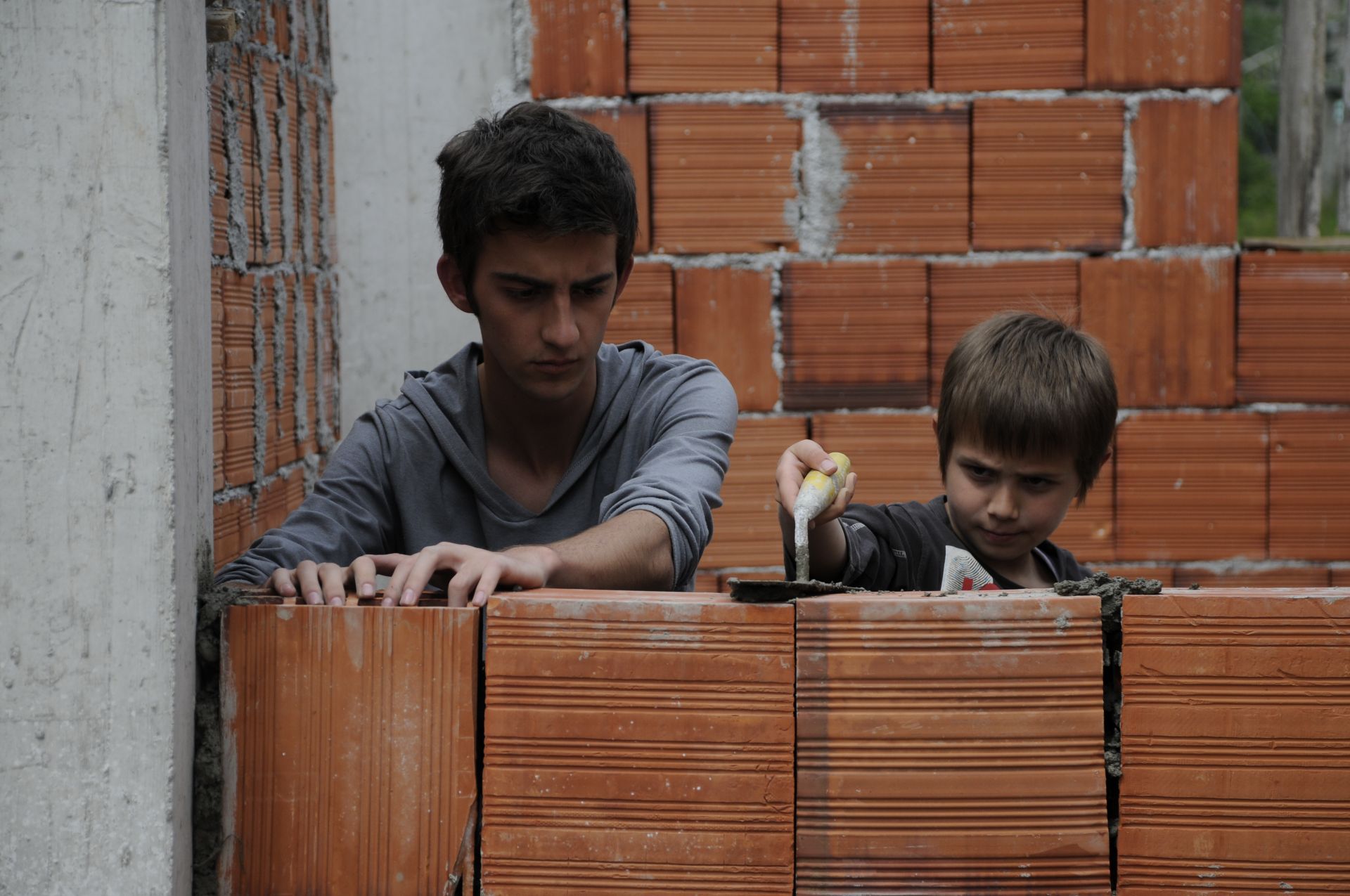Review: The Forgiveness of Blood
March 16, 2012 by Danny Baldwin

Joshua Marston’s debut feature, Maria Full of Grace, was a gut-wrenching film marred only by its final shot, which transformed the protagonist into a heroine, thereby betraying its sobering objectivity. With his latest film, The Forgiveness of Blood, Marston appears to have learned from that mistake, remaining as much of a neutral observer as he possibly can without compromising the humanity of his main characters.
Marston, a Los Angeles native, once again sets his film in a part of the globe that few Americans are familiar with – this time, Albania. Despite the presence of modern technologies like cell phones and cars, Mark (Refet Abazi) still sells bread from a horse-driven cart. He rides on a path that his family has taken for ages, much to the disdain of neighbor Sokol (Veton Osmani), who owns the land. One day, the feud comes to a head and Mark kills Sokol, then goes into hiding. Under a law called the Kanun, for as long as Mark escapes justice, Sokol’s family has the right to kill one of Mark’s sons if they leave their home. This marks the end of a typical teenage life for Nik (Tristan Halilaj), who must now indefinitely spend his days inside because of an act he played no part in.
Marston’s film is a fascinating sociological look at an underdeveloped country, where ancient laws are still upheld despite the clear influence of Westernization in other aspects of life. As was the case with Maria Full of Grace, Marston allows the viewer to understand the complexities of the setting through an emotional connection with the protagonist. That cell-phone wielding Nik seems like the average American teenager makes the primitive actions and legal code surrounding him all the more maddening a portrait of dated Albanian social mores – one that, against the odds, boasts not even a hint of white liberal guilt.
The performances, by native non-actors, are strong across the board – in what can likely be chalked up as another directorial accomplishment for Marston. While they lack the force of Catalina Sandino Moreno’s Oscar-nominated debut in Maria Full of Grace, the teenagers of the family—Tristan Halilaj as Nik and Sindi Lacej as his younger sister, Rudina—maintain the emotional core of the film, never once seeming like amateurs. And while their adult counterparts, furiously caught up in centuries-old beliefs, may not seem humane in the sense that Western audiences are accustomed to, they are all but cartoons.
That Marston keeps The Forgiveness of Blood from being a message movie, as his prior film unfortunately succumbed to being, is a sign of confidence in the material. Co-writing with Andamion Murataj, he realized that providing a nuanced portrait of a little-known way of life is all the picture needed – the viewer can do the rest of the work on their own, sans messaging from the filmmaker. In fact, outside of the handheld cinematography intended to lend immediacy, The Forgiveness of Blood feels about as close to unfiltered life as a narrative-based work can be.
![]()
* * *
The Forgiveness of Blood (2012,; USA, Albania, Denmark, Italy). Produced by Eric Abraham, Gwen Bialic, Tyler Brodie, Janine Gold, Andrew Goldman, Hunter Gray, Paul Mezey, Andamion Murataj, and Domenico Procacci. Directed by Joshua Marston. Written for the screen by Joshua Marston and Andamion Murataj. Starring Refet Abazi, Tristan Halilaj, Sindi Lacej, and Ilire Vinca Celaj. Distributed by IFC Films. Not rated, with a running time of 109 minutes.
